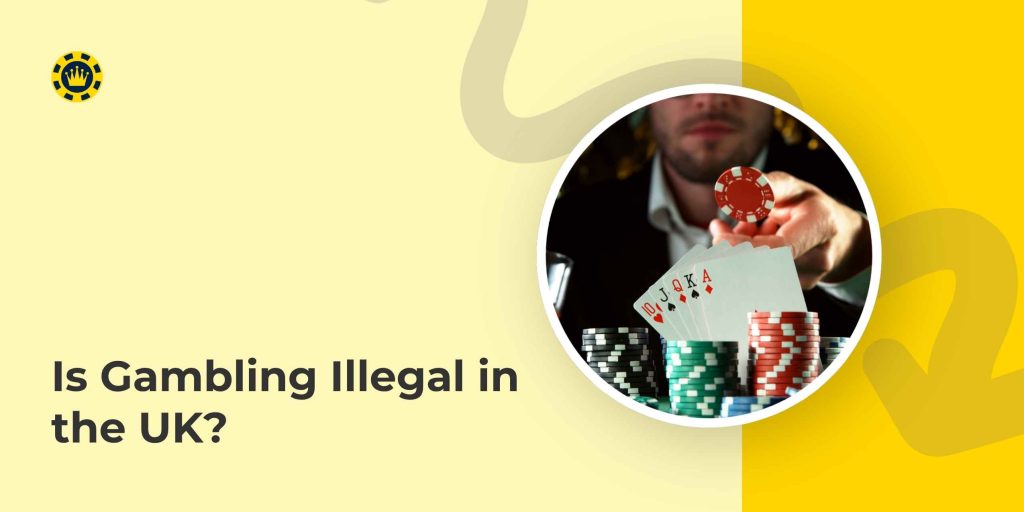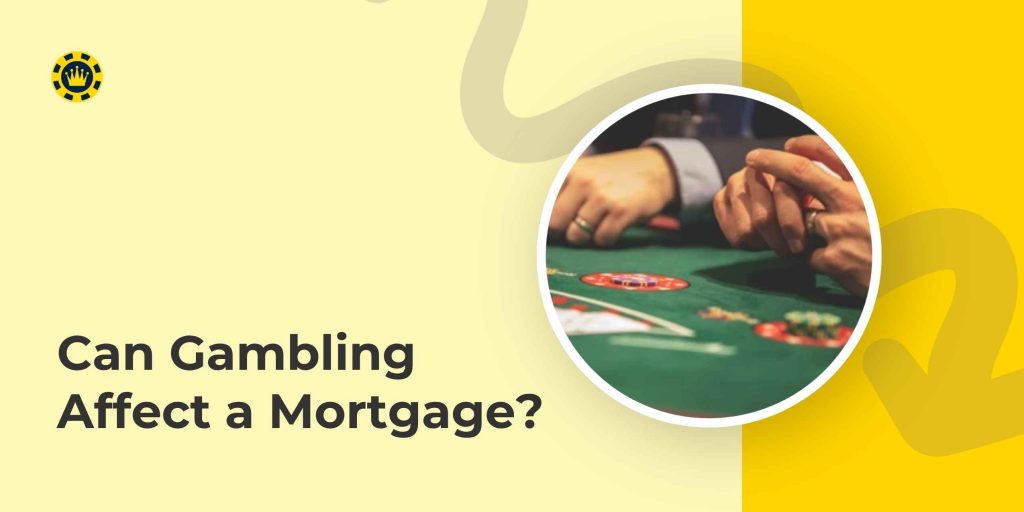Gambling is a sin for some and simple fun for others, yet it’s everywhere, from small wagers to the new bill aiming to control online play. The line between a light bet and real harm isn’t always clear.
Many turn to faith for guidance. Is betting a sin? What does the Bible say about gambling, and how do scriptures on gambling shape these views?
This piece sets out those teachings and the real-world concerns behind them, so readers can see how gambling in the Bible connects with the choices people face today.
The Nature of Gambling
Before determining whether gambling constitutes a sin, we need a clear sense of what the act actually involves, especially since discussions about gambling in the Bible often hinge on its basic features. At its core, gambling rests on three elements:
1. Risk: Wagering something of value.
2. Chance: An outcome determined primarily by luck.
3. Reward: The potential to win something of greater value.
This definition helps distinguish gambling from legitimate investment or business ventures, which typically involve calculated risks based on market research, expertise, and the creation of productive value.
Did you know?
Excessive Gambling can be bad for you, apart from the religious angle, and it can affect your mortgage applications.
Religious Perspectives on Gambling
The first thing that must be acknowledged is that the Bible does not explicitly say that gambling is a sin. However, just because Scripture doesn’t prohibit something directly doesn’t mean it’s right.
The Bible doesn’t explicitly condemn many modern behaviors that Christians widely agree are harmful, and this is why discussions around bible verses against gambling KJV often depend on broader principles rather than direct commands.
Instead, religious traditions evaluate gambling through broader biblical principles about money, stewardship, and moral conduct.
What Counts As a Sin Across Religions?
Sin, broadly understood, represents actions that violate divine law or moral principles.
While definitions vary, most religions consider behaviors that harm oneself, others, or one’s relationship with the divine as sinful.
The evaluation of gambling often depends on whether it leads to such harmful outcomes.
1. Views of Abrahamic Religions (Christianity, Judaism, Islam) on Gambling:
The bible has no biblical prohibitions against gambling. But many denominations interpret passages about greed (1 Timothy 6:9-10) and stewardship (Matthew 25:14-30) as warnings against it.
Conservative churches often condemn gambling due to its association with covetousness and potential for addiction.
However, some Christian perspectives distinguish between responsible entertainment and compulsive behavior, focusing on intent rather than the act itself.
Judaism similarly contains no direct Torah prohibition, though Talmudic discussions express concern about gambling’s potential to lead to dishonesty and family neglect.
Islamic jurisprudence generally prohibits gambling (maisir) based on Quranic verses (5:90-91) that classify it alongside intoxicants as Satan’s handiwork.
2. Views of Eastern Religions (Hinduism, Buddhism, etc.) on Gambling:
Buddhism’s core teaching about attachment suggests that a gambling problematically feeds desire and creates suffering. The pursuit of material gain through chance contradicts the path toward enlightenment and detachment from worldly concerns.
Hindu texts like the Mahabharata depict gambling’s destructive potential, though modern interpretations vary. Both traditions emphasize karma’s role in determining outcomes, questioning whether games of chance truly exist in a universe governed by cause and effect.
These Eastern perspectives focus less on divine prohibition and more on gambling’s impact on spiritual progress and personal development.
3. Other Spiritual or Philosophical Views on Gambling:
Secular ethical frameworks evaluate gambling differently. Utilitarianism weighs the pleasure derived against potential harm from gambling, while deontological ethics considers whether gambling violates universal moral duties.
Virtue ethics examines whether gambling cultivates or corrupts character traits like prudence and temperance.
These approaches often conclude that context and consequences matter more than the act itself.
Why Gambling Can Count As a Sin?
Those who view gambling as sinful present compelling arguments rooted in religious teachings and observable consequences.

For a legal perspective on this debate, read more about whether gambling is illegal or not.
Here are the 3 critical reasons why gambling can be a sin:
Gambling Relates To Greed and Covetousness
Gambling fundamentally appeals to the desire for unearned wealth, contradicting religious teachings that value honest labor and contentment.
The hope of winning big can transform into an obsession, displacing spiritual priorities with material pursuits.
This fixation on money directly opposes biblical warnings that “the love of money is a root of all kinds of evil” and challenges similar teachings across faith traditions.
The Risk of Addiction and Harm
Gambling addiction affects millions globally, destroying families, careers, and lives. This compulsive behavior creates a form of bondage that religious traditions recognize as spiritually harmful. A post by The Guardian suggests that harm from problem gambling can be eight times higher than thought.
The neurological changes associated with gambling addiction parallel those of substance abuse, suggesting that gambling can rewire the brain in ways that diminish free will and moral agency.
With gambling not being taxable in the UK, the chances of addiction can be higher compared to countries that tax it.
The Principle of Stewardship
Most faith traditions teach that resources, time, talents, and treasure are divine gifts that require responsible management.
Gambling violates this principle by risking resources on chance rather than purposefully investing them.
The stewardship argument suggests that even small wagers represent poor management of blessings intended for family support, charitable giving, or community benefit.
Exploitation and Social Justice Concerns
Gambling industries often profit disproportionately from society’s most vulnerable members.
Low-income individuals spend higher percentages of their income on lottery tickets, while problem gamblers frequently come from marginalized communities.
This exploitation contradicts religious mandates to protect the poor and vulnerable, making gambling participation potentially complicit in systemic injustice.
Modern Views on Whether Gambling Is a Sin
Many modern discussions say is gambling a sin depends less on the act and more on its impact. Some see small wagers as ordinary entertainment in a world where money and risk already shape daily life.
Others argue that intent matters, noting that pressure, debt, and digital betting can blur moral lines faster than before.
A growing view treats gambling as acceptable only when it avoids harm, protects relationships, and stays rooted in personal responsibility.
Why Gambling Can’t Be a Sin?
The moral evaluation of gambling isn’t always black and white, with several factors potentially moderating its ethical status.

While the arguments for gambling to be a sin are strong, the counterarguments to it are equally sensible.
Responsible Gambling and Entertainment
Proponents argue that moderate gambling with disposable income for entertainment purposes differs fundamentally from compulsive behavior.
Just as enjoying an expensive meal or attending a concert involves spending money on fleeting experiences, responsible gambling might represent legitimate recreation rather than sin.
The key distinction lies in maintaining control and avoiding harm to oneself or others.
Intent and Motivation
Religious traditions often emphasize the heart’s condition over external actions. Someone participating in a charity raffle differs morally from desperately gambling away rent money.
Intent matters: Is the primary motivation greed, entertainment, social connection, or charitable support?
This nuanced view suggests that identical actions might carry different moral weights based on underlying motivations.
Potential Positive Aspects (Raffles, Charity Events)
Many religious organizations conduct raffles or bingo nights for fundraising. These activities technically involve gambling mechanics but serve charitable purposes.
This apparent contradiction suggests that context and ultimate purpose influence moral evaluation.
When gambling-like activities primarily benefit others rather than exploiting participants, their ethical status may shift.
Cultural Context
Different cultures integrate games of chance into social traditions without necessarily viewing them as morally problematic.
Traditional dice games at festivals or friendly wagers during celebrations might strengthen community bonds rather than undermine them.
Cultural context influences whether gambling represents vice or virtue, suggesting that universal pronouncements may oversimplify complex social practices.
Guide for Decision-Making on Gambling
For those seeking guidance on gambling, consider these principles:
1. Prioritize Relationships Over Recreation: Never let gambling harm relationships with God, family, or community.
2. Practice Contentment: Hebrews 13:5 advises, “Keep your lives free from the love of money and be content with what you have.”
3. Seek Accountability: Share your decisions with trusted spiritual mentors who can provide wisdom and oversight.
4. Consider the Wider Impact: Think beyond personal freedom to how your choices might influence others, especially those vulnerable to addiction.
5. When in Doubt, Abstain: If uncertainty persists about gambling’s place in your life, choosing abstinence demonstrates wisdom and caution.
Personal Discernment: Questions for Self-Examination While Gambling
For those wrestling with whether gambling is sinful in their own lives, several key questions can guide discernment:
- Why am I gambling?
Is it for entertainment, social connection, or driven by greed and the desire for easy money? - Can I afford what I’m risking?
Am I gambling with money needed for essentials or family obligations? - Is this activity hidden from others?
Secrecy often indicates that something may not align with our values. - Does gambling control me, or do I control it?
Any activity that becomes compulsive deserves scrutiny. - Have I consulted God about this?
For believers, prayer and spiritual guidance should inform major life decisions.
What Do I Think About Gambling Being a Sin?
After years of studying various religious texts and observing real-life impacts, I’ve come to view this question through a more nuanced lens. My church teaches that gambling is sinful, but personally, I believe the answer isn’t that simple in modern life.
I believe gambling becomes a sin when it replaces God in our lives or harms ourselves and others. Like many activities, it’s not inherently sinful but depends on moderation, motivation, and impact. If gambling controls you, damages relationships, or compromises your responsibilities, it’s problematic.
But responsible entertainment within one’s means, without neglecting faith, family, or financial obligations, may not constitute sin. Intent and consequences matter more than the act itself.
Safer Gambling Guide:
Conclusion: Gambling Is Not Always Judged A Sin In Scripture
The question “Is gambling a sin?” rarely fits into a simple yes or no. The Bible offers no direct ban, other faiths move between strict rejection and cautious acceptance, and moral frameworks tend to look more at intent and impact than the act itself.
Instead of chasing hard rules, ask whether gambling fits your values, supports your relationships, and adds or takes away from your growth.
The clearest answer comes from honest reflection on how gambling shapes your life, faith, and responsibilities. In the end, you choose what place it should hold in a life that aims to stay grounded and meaningful.
FAQs
While the Bible doesn’t explicitly prohibit lotteries, many churches discourage them due to stewardship concerns and potential greed. Individual Christians should examine their motivations and spiritual impact before participating.
Many religions distinguish between social gambling with friends using modest stakes and commercial gambling designed for profit. Context, stakes, and potential harm influence the moral evaluation.
Most religions differentiate between researched investments analyzing companies and economic trends versus pure games of chance. Investment involves calculated risk, while gambling relies on random outcomes.
Many religious organizations conduct charitable raffles or bingo nights where the charitable purpose often mitigates moral concerns. Some denominations still avoid all gambling-like activities regardless of purpose.
Online gambling’s 24/7 accessibility and privacy significantly increase addiction risks, causing heightened concern among religious leaders. The digital format poses particular dangers for young people’s spiritual and financial well-being.
Religious perspectives often question gambling based on stewardship principles and spiritual focus, regardless of visible harm. Absence of negative consequences doesn’t automatically make an activity virtuous or spiritually beneficial.
Religious educators recommend age-appropriate conversations about money management, risk, and values while modeling responsible behavior. Teaching potential dangers helps children develop healthy attitudes toward money and risk-taking.
Many religious individuals participate in moderate gambling while maintaining faith through self-awareness and strict limits. The key is ensuring that gambling doesn’t compromise spiritual priorities or harm others.









